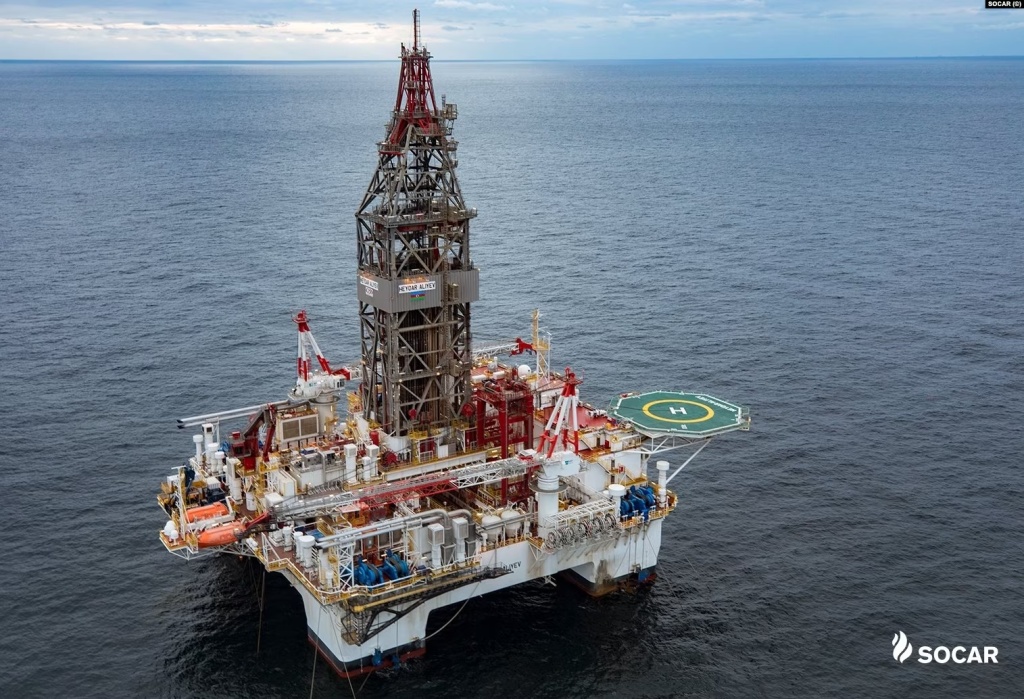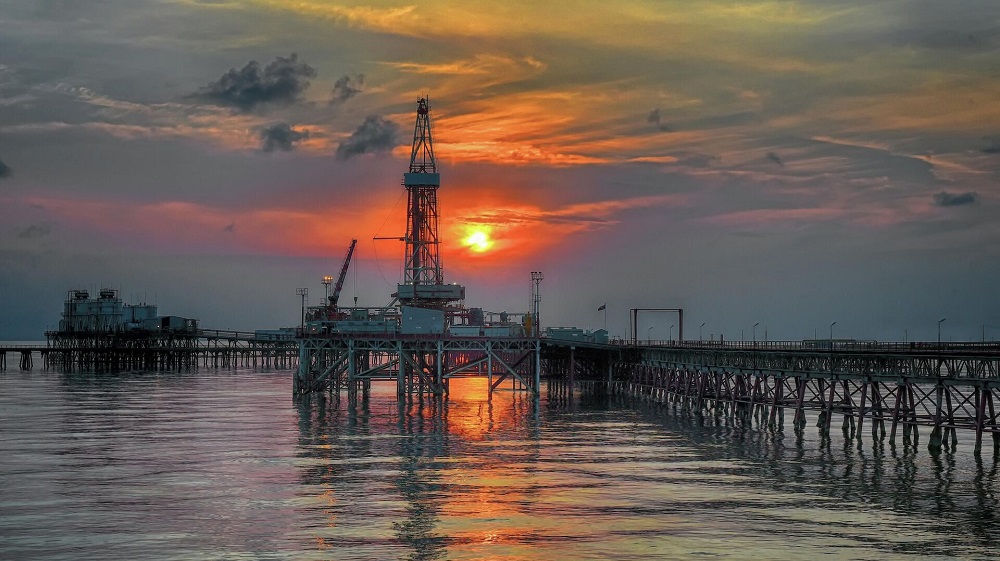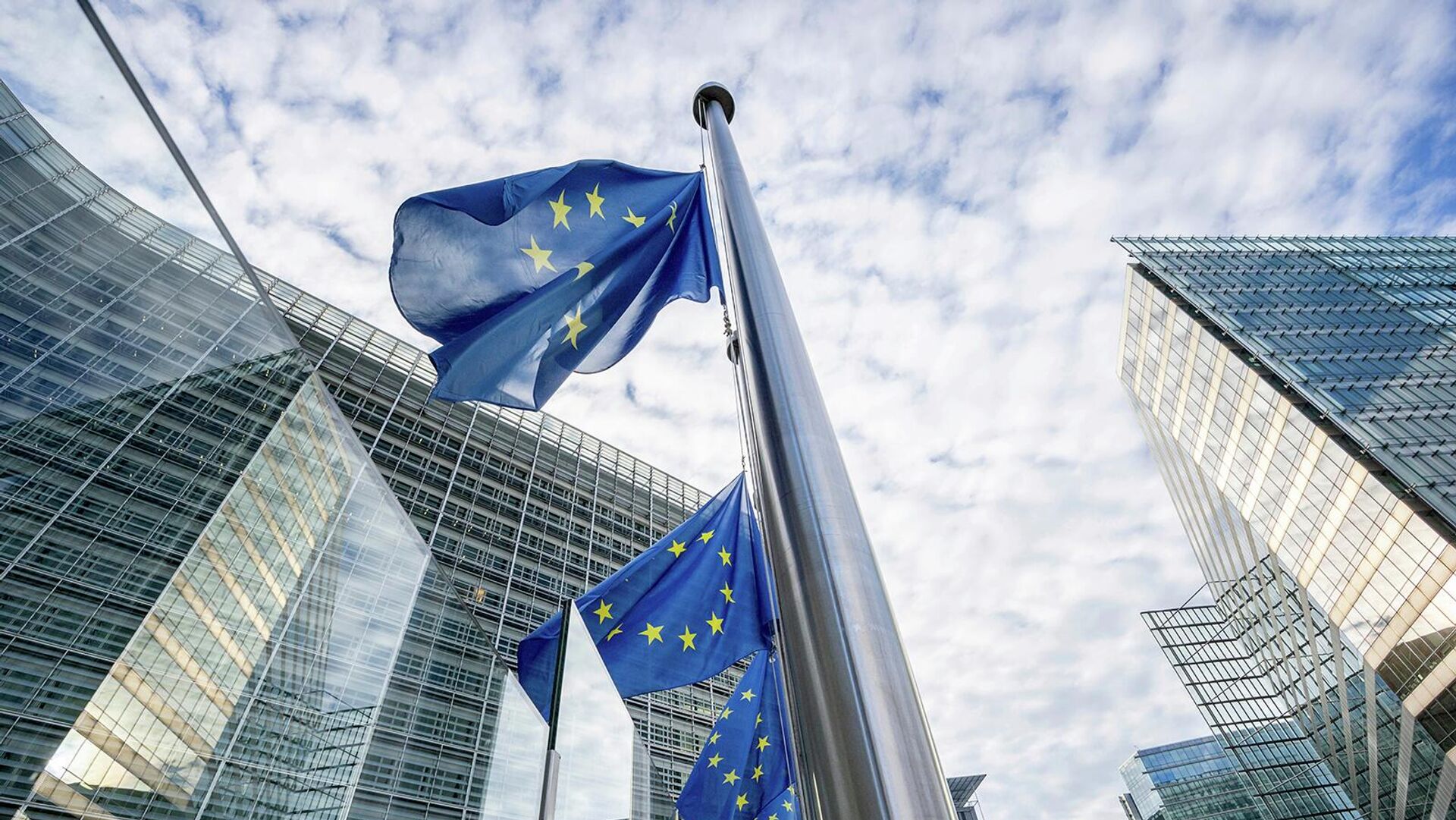Baku's other offensive: Azerbaijan expands its influence in the Balkans
Azerbaijan and the Balkans
Against the background of Azerbaijan’s recent military success, which achieved the de facto capitulation of the unrecognized republic created by the Armenians of Nagorno-Karabakh, Baku’s other offensive – an economic one – remains less visible. Azerbaijan has recently been extending its primarily raw material influence to Central Europe and the Western Balkans.
Radio Liberty pondered the question – what consequences could this have?

Baku will warm Belgrade and Tirana?
Azerbaijani President Ilham Aliyev’s not widely publicized visits to the capitals of several European countries last fall and this spring brought interesting results. In Tirana last November, Aliyev announced the decision to open an Azerbaijani embassy in the Albanian capital and to supply Albania with 200 million m³ of gas for a new thermal power plant. In December, the Azerbaijani leader heard from Serbian President Aleksandar Vucic in Belgrade that Aliyev and his country are “reliable partners not only for us, but for everyone [in the Balkans]… We must sign agreements, but Ilham Aliyev’s word is enough for us.”
In April an agreement on strategic partnership between the two countries emerged following a meeting with the Chairman of the Presidium of Bosnia and Herzegovina (BiH) Zeljka Cvijanovic in Sarajevo. Relevant structures in Baku are instructed to study the prospects of supplying Azerbaijani gas to BiH. During this period, the Azerbaijani leader also held talks with the presidents of Bulgaria and Romania, the prime ministers of Croatia and Montenegro, and two meetings with Hungarian Prime Minister Viktor Orban, with whom Ilham Aliyev has a long-standing political partnership. The agenda of Aliyev’s talks with the leaders of the countries of the region was not limited to gas issues, but included politics. It is possible, the agency notes, that the Azerbaijani president was chosen as an additional “shadow” mediator in solving the Kosovo problem. There is no official confirmation of this.
Azerbaijan is no newcomer to the economic and geopolitical game both in the post-Soviet space and in other regions. The regional Organization for Democracy and Economic Development (GUAM), which emerged in 1997 and included Georgia, Ukraine, Azerbaijan and Moldova (from 1999 to 2005 Uzbekistan was also a member), declared as one of its main goals the weakening of economic and energy dependence on Russia. This meant the development of energy transit along the Asia (Caspian) – Caucasus – Europe route, bypassing Russian territory. GUAM activities were gradually phased out, but with the beginning of Russia’s aggression against Ukraine, the ideas laid down by the founders of the organization began to gain a new breath. The countries of the European Union became extremely interested in energy sources alternative to the Russian ones and ways of their delivery.
Europe wants reliability. What will Moscow say?
Already in July 2022, Ursula von der Leyen, Chairwoman of the European Commission, arrived in Baku and said to Ilham Aliyev: “Thank you for supporting the European Union. Because even before Russia’s inhuman invasion of Ukraine, Russian gas supplies to Europe were no longer reliable. The European Union decided to diversify gas supplies from Russia and turn to more reliable, trustworthy partners. And I am glad that Azerbaijan is one of them. You are indeed our most important energy partner and you have always been reliable.” As a result, the European Commission signed an agreement with Baku to double the imports of Azerbaijani natural gas by 2027 and bring its volume to at least 20 billion m³ per year over 15 years.

Soon after, in October 2022, the Greece-Bulgaria gas interconnector (IGB) was launched, bringing Azeri gas to Bulgaria. In addition to the fact that the IGB dramatically reduces Bulgaria’s own dependence on Russian gas, the new energy arm, with an initial capacity of three billion and a design capacity of five billion m³ per year, will be able to supply neighboring Serbia, Northern Macedonia, Romania and, in the future, Moldova and Ukraine with gas. Gas operators in Bulgaria, Romania, Hungary and Slovakia immediately offered to transport increased volumes of Azerbaijani gas through their networks to Central Europe.
Experts also point to other promising projects for the development of Azerbaijan’s energy ties with the Balkan countries. This is the Ionian-Adriatic Pipeline (IAP), which will be able to transport Azerbaijani gas from Albania to Croatia via Montenegro and Bosnia, and then supply it to Central Europe. In the long term, Azerbaijan is interested in improving the efficiency of the Trans-Caspian International Transport Route, also called the Middle Corridor. It connects Central Asia and Europe via Kazakhstan and the Caspian Sea and passes through the Balkans. The scheme to deliver electricity from Azerbaijan to Romania and eventually to Central Europe via a 1,200-kilometer-long cable under the Black Sea is quite large-scale. Azerbaijan, Georgia, Romania, Hungary and Romania have tentatively agreed to create such a “green corridor”.
“You are our most important energy partner”
In August this year, Viktor Orban and Ilham Aliyev agreed that Hungary would purchase 100 million m³ of natural gas from Azerbaijan by the end of the year, and in the following period this volume will reach 1 billion m³. The supplies will go through Turkey and the Balkans. Azerbaijan rewards Turkey and Hungary with energy deals, experts say, as the former is Baku’s guide in the Balkans and the latter is a bridge to Central Europe. At the moment, Baku has concluded agreements of one format or another on gas supplies with Albania, Bulgaria, Hungary, Romania, Serbia, Slovakia and Croatia.
Are all these actions and plans a play against Moscow? Azerbaijan, writes Baku-based analyst Fuad Shahbazov, has adjusted its foreign policy agenda to focus on the Balkan region, which is more vulnerable to the energy crisis than Central and Western European states. While the leading EU countries are able to compensate for energy shortages by utilizing energy reserves, using alternative energy sources and importing additional volumes of gas from alternative suppliers, the less developed Balkan states are struggling to adapt to energy shortages.
Since the outbreak of the war in Ukraine, demand for Russian gas has been steadily falling. According to the International Energy Agency, pipeline exports of Russian gas to the European Union fell by 75 percent to just over 10 billion m³ in the first half of 2023. By comparison, the same volume of Azerbaijani gas goes annually to Europe via Greece and Albania only through the Trans Adriatic Pipeline (TAP), which has been in operation since 2020.
Who’s against it?
Azerbaijan’s confident energy march in the world markets has also attracted the attention of the world community to the old painful issue of this country – the violation of human rights. Immediately after Ursula von der Leyen’s visit to Baku, fifty French politicians of different party affiliation signed an open letter in which they warned that by choosing Azerbaijan as a gas supplier, the European Commission President is weakening the European Union. According to the authors of the letter, written before the current victorious phase of the Karabakh conflict for Baku, Ilham Aliyev’s regime is using the revenues from gas sales to further arm and aggravate the situation in Nagorno-Karabakh. In addition, the EU’s Azerbaijani decision is rooted in the past, the signatories of the message say. They say it runs counter to the European Union’s plans for energy transition and its demands for a more sovereign energy policy.
- The regularly updated list of political prisoners in Azerbaijan includes about one hundred names. It includes journalists, members of opposition parties and movements, religious activists and even political emigrants deported from abroad. The Azerbaijani authorities deny the existence of political prisoners in the country.
The EC’s agreement with Azerbaijan, says gas specialist Gligor Radečić of the Bankwatch Network non-governmental organization, contradicts both the EU’s own climate goals and its human rights standards. In addition, the expert notes, few people mention that the critical infrastructure needed to extract and transport gas from the Caspian Sea to Europe is co-owned by Lukoil, a Russian oil and gas giant with close ties to President Putin’s regime.

Philippe Dam, Europe and Central Asia director for Human Rights Watch, warns that Europe has missed a major opportunity to put human rights first in its partnership with Azerbaijan. The EU-Azerbaijan deal benefits the government but does not “guarantee any protection of human rights,” Dam told Fortune. “Independent activism, critical journalism, and opposition political activity in Azerbaijan have been virtually destroyed,” Human Rights Watch argued.
Referring to the outcome of the Nagorno-Karabakh conflict, Bernard Guetta, French journalist and former Le Monde correspondent in Moscow, now a member of the European Parliament, writes: “Shouldn’t we start by realizing that, thanks to our joint efforts, we are no longer dependent on Baku’s oil and can force Azerbaijan to respect all the rights of the Armenian minority because Baku needs our money?”
- Karabakh is considered by international law to be part of Azerbaijan. The population of the region was predominantly ethnic Armenian. Since the early 1990s, Baku has not controlled much of the region, where armed conflicts have periodically erupted. Representatives of the Armenian community proclaimed an independent republic there, which was not recognized by any country, including Armenia.
- On September 19, Azerbaijan launched a new military operation (before that, military clashes in the region took place in spring 2016 and at the end of 2020) against the unrecognized republic of Nagorno-Karabakh, where tens of thousands of ethnic Armenians lived. On September 20, the leadership of the unrecognized region capitulated on Baku’s terms. The Azerbaijani authorities declared their readiness to negotiate the reintegration of Karabakh’s Armenian population.
- Despite such statements by Azerbaijan, a mass exodus of the region’s Armenian population to Armenia began. According to the data of the authorities of that country as of September 30, more than 100 thousand people arrived there from Karabakh. Armenian Prime Minister Nikol Pashinyan called the mass exodus of Karabakh Armenians “ethnic cleansing” and “deportation”. In response, the Azerbaijani Foreign Ministry said that from the very beginning it had urged the residents of the region to stay in their homes and begin the process of reintegration into Azerbaijani society.




















